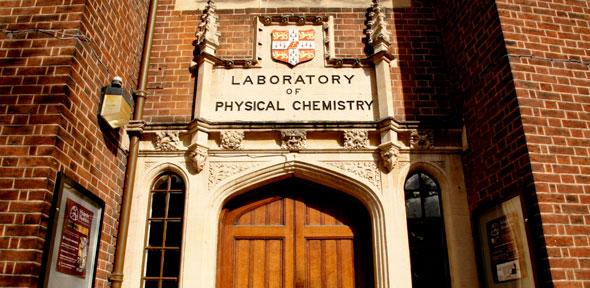
History and philosophy of science offer powerful approaches to interpreting knowledge. The Department of History and Philosophy of Science at the University of Cambridge is the largest institution of its kind in the UK and has an outstanding international reputation for teaching and research. Human and material resources are excellent.
Specialist staff teach a wide range of subjects across the history, philosophy and sociology of the sciences and medicine. The environment is exemplary in the number of externally-funded research groups, the lively community of postgraduate students and postdoctoral researchers, and the active programme of research seminars and reading groups. HPS also has close links to other university institutions across the medical, natural and social sciences, the arts and the humanities, including through the Centre for Research in the Arts, Social Sciences and Humanities, and to the Needham Research Institute, the leading Western centre for the history of science, technology and medicine in East Asia.
Located in the heart of Cambridge, the Department is centred on the Whipple Museum, a world-class collection of scientific instruments, and the Whipple Library, the largest specialist library in history and philosophy of science and medicine in the UK. The holdings of this and the other Cambridge libraries, including the University Library, are among the richest in the world.
The pass rate in all courses approaches 100%, and in recent years about 80% of successful doctoral students have taken posts in the field of HPS. Students go on to a wide range of careers, from academic work in universities, museums and libraries to science journalism and consultancy.
Key research areas
- History of health and medicine (Mary Brazelton, Philippa Carter, Nick Hopwood, Lauren Kassell, Dániel Margócsy)
- History of the physical sciences (Richard Staley)
- History of the life and earth sciences (Nick Hopwood, Staffan Müller-Wille)
- History of instruments (Joshua Nall)
- History of science communication (Nick Hopwood)
- Global histories of science (Mary Brazelton, Charu Singh)
- General philosophy of science (Hasok Chang, Marta Halina, Tim Lewens)
- Philosophy of social and psychological sciences (Anna Alexandrova, Marta Halina)
- Philosophy of biology (Marta Halina, Tim Lewens, Staffan Müller-Wille)
- Philosophy of medicine (Stephen John, Tim Lewens)
- Bioethics and public health ethics (Stephen John, Tim Lewens)
- Philosophy of physics (Hasok Chang)
The Department has a long and distinguished tradition in history of medicine and is a major centre of teaching and research in the field. Expertise in medical history covers an exceptionally wide range, from antiquity to the present, from the medieval universities to the postwar laboratory sciences, from anatomy to psychoanalysis. Students have the opportunity both to focus on history of medicine, and to take advantage of intellectual exchange with colleagues in related areas.
Lectures, seminars and reading groups
A lively programme of research seminars and reading groups makes the Department a hive of intellectual activity. In addition to the weekly departmental seminar, there are regular specialist research seminars and reading groups on history of medicine, history of natural history, 20th-century science, philosophy of science, philosophy and history of physics, philosophy of psychology, and science and literature. Regular workshops allow postgraduate students to present and discuss work in progress.
Students are entitled to attend any undergraduate lectures in the University.
Libraries
Cambridge has excellent library resources for history and philosophy of science and medicine. The Department's own Whipple Library was founded on Robert S Whipple's collection of rare scientific books and includes over 10,000 such volumes, some dating back to the 15th century.
The University Library is entitled to a copy of every print publication from the UK and Ireland. It has over 8 million books and journals, among them many early printed books. Manuscripts include the papers of Isaac Newton, Charles Darwin, James Clerk Maxwell, Lord Kelvin, George Stokes, JJ Thomson and Ernest Rutherford, and of major scientific institutions in the University. Other departmental and faculty libraries and the College libraries house many valuable resources.
Museums
The Department is unusual in having teaching programmes connected to a world-class collection of scientific instruments, models and books – the Whipple Museum of the History of Science, the gift of RS Whipple to the University in 1944. Instruments of astronomy, navigation, surveying, drawing and calculating are well represented in the collection, as are sundials, mathematical instruments and early electrical apparatus.
Students are actively encouraged to work with objects in the Whipple Museum. Postgraduate students have the opportunity to produce case studies to display their current research.
Several other University museums are also important resources for studies in history of science, including the Sedgwick Museum of Earth Sciences and the Museum of Archaeology and Anthropology.
Languages and palaeography
The University Language Centre offers courses in 140 modern languages at basic and intermediate levels. Latin and Greek courses are offered by the Faculty of Classics. Several departments offer palaeography courses. (You may need to sign up early for some of these.)
The Department has its own informal reading groups for Latin and Greek, which help beginners and experts with translations.
